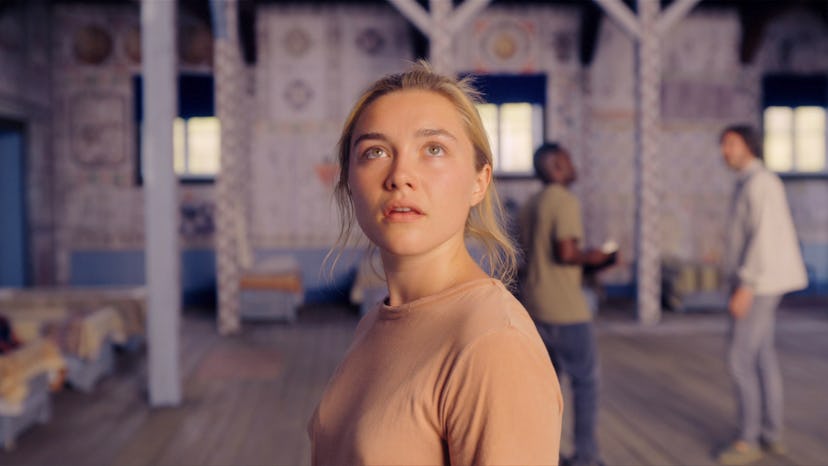Midsommar First Reviews: It’s a Break-up Horror Comedy That Lives Up to the Hype

With Midsommar, Ari Aster isn’t trying to reinvent the wheel, but he does apparently succeed in revamping the folk-horror genre.
Aster’s first film, Hereditary, received glowing reviews after its Sundance premiere, but by the time it went wide in the summer, the film made audiences so squeamish that they walked out of screenings. In hindsight, those reactions were probably born out of fear rather than disappointment (as those CinemaScore numbers might have you think). The movie even made its star, Alex Wolff, lose his mind a little bit while filming the sinister tragedies his character experiences in each act of the story.
Here we are, a year later, and those Aster naysayers seem to have done a 180 with the director’s second film, which critics are praising as, “disturbing,” “traumatizing,” “surprisingly hilarious,” and “a mindf–k.”
Starring Florence Pugh and Jack Reynor as a couple on the brink of a breakup after a family tragedy, the film follows those two and a group of friends as they travel to rural Sweden for an annual Midsommar festival. Chaos ensues, of course, and the festival spins into a culty pagan ritual.
Of course Aster and A24, the distribution company attached to the film, have been keeping the details of the plot so tight that even uncovering what genre the movie falls under seemed like an impossible task when the first trailer dropped, but now it appears that Midsommar is a horror film, a romantic tragedy, and a comedy all rolled into one, according to early comments made by the director and reviews from across the web. IndieWire insists that it might not give viewers a fright “in the traditional sense” but praises Aster for a refreshing take on the folk-horror genre, and calls it a “smoother ride” than Hereditary. The Hollywood Reporter noted the film’s references to The Shining, and it currently sits with a 100 percent fresh rating on Rotten Tomatoes.
Other filmmakers have joined the chorus of glowing praise for Aster’s sophomore film, like Leslye Headland, who called Midsommar “an American answer to Von Trier or Haneke” and plans to list it as one of her favorite films of the year. Earlier this month, Jordan Peele—another horror-cinema auteur who recently stuck the landing for his own sophomore film—gushed about how “unique” he thought Midsommar turned out to be, and how it takes over for The Wicker Man as the most iconic pagan movie to be referenced.
Whether or not Midsommar actually is more frightening than Hereditary is subjective, but the scariest part of the whole thing might just be that the scenes are bathed in bright light the entire time the protagonists are in Sweden. Credit must be given where it’s due when it comes to flipping a typical horror film trope (shooting a movie in near-total darkness) on its head.
And if you’re wondering how much of the film is based in reality, the answer is, well, some of it. There is an actual Midsommar festival that takes place in Sweden every June, but it doesn’t involve “disturbing” bloody rituals like what is shown in the film. You’ll just have to see it yourself to decide whether or not Midsommar lives up to the hype when it hits theaters on July 3.
Related: What is Midsommar Even About?